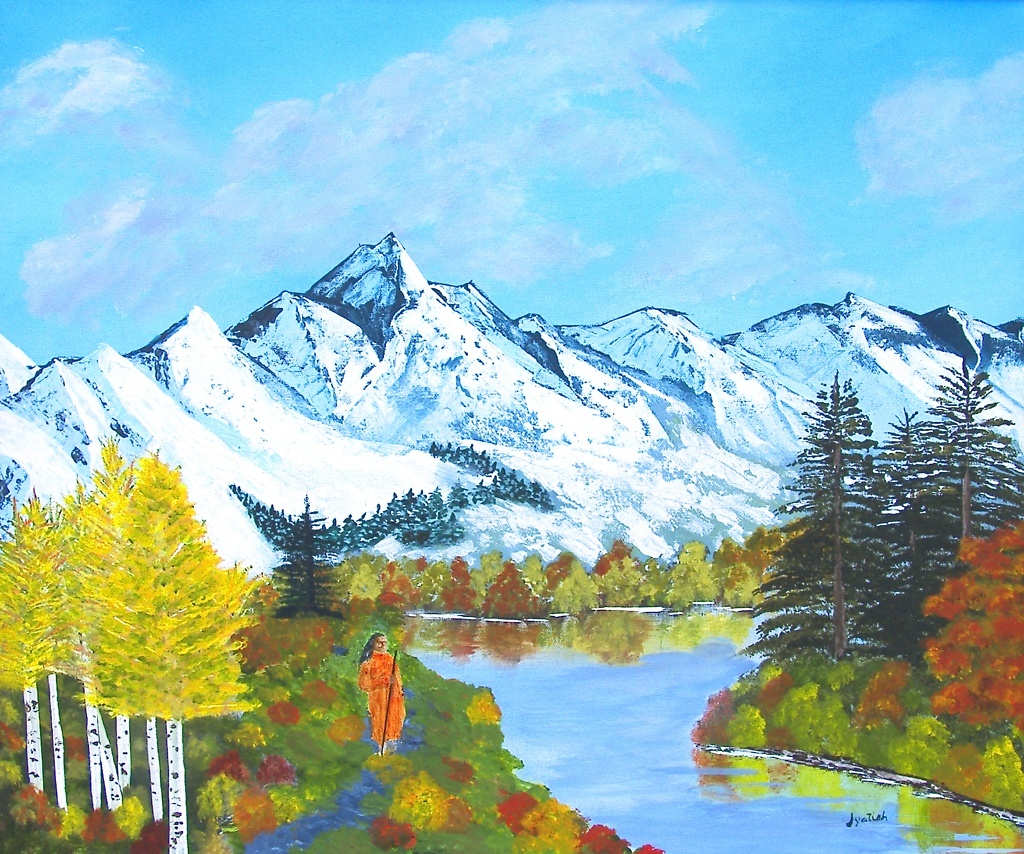What Keeps Us Moving Towards God
“The harvest truly is plenteous, but the laborers are few.”
The traditional explanation of these words of Jesus Christ is that he’s urging his disciples to go out and convert people to his teachings. Paramhansa Yogananda interpreted Christ’s words in a different way: Christ was speaking of the inner “harvest” of divine consciousness, which few people actually seek.
Why only a few? Most people aren’t interested in a world beyond the senses. Even among those who are seeking higher realities, many are daunted by the commitment and effort that the spiritual path entails. So, what are some things that can help us to keep “working the field” until we can harvest the crop of God-realization?
Hope⌗
Within each of us lies a seed of hope that we truly can achieve our spiritual goals. Though the soil of our consciousness may sometimes seem barren and dry, if we nurture this seed, it can keep us going.
Master said, “I remember the day when for the first time, unlooked-for, from behind the clouds of the drudgery of routine meditating habits, the aurora of bliss suddenly burst upon my consciousness. It surpassed all my expectations. Joy indescribable!”
How reassuring to think that Master, in some long-past lifetime, struggled to keep motivated! We, too, must keep alive the spark of hope that we will reach our goal.
Memory⌗

Patanjali, the ancient authority on yoga, described spiritual awakening as smriti, which means “memory.” There may come moments when we experience a higher level of consciousness that somehow seems familiar. Perhaps it’s a memory from when our soul was in the astral world, or perhaps a higher state of awareness we once held. Whatever the source of this memory, we need to use it as a point of reference in our spiritual journey.
A friend shared a true story about a family whose mother had recently given birth to a second child. The older brother, who was about four years old, was jealous of this new “intruder” who was taking away his parent’s attention.
The older boy asked his mother if he could be alone with the new baby. Unsure of what the boy had in mind, the mother agreed, but stood listening outside the door of the room. Standing next to the crib where his little brother lay, the boy whispered, “I’m starting to forget what God is like. Can you help me remember?”
Cling to any memories you may have of God’s presence, and let them lead you forward.
The Promise⌗
Finding a true guru is, in itself, the greatest blessing on our journey toward Self-realization. Inherent in the guru-disciple relationship is the promise that he or she will bring us to God. Master said, “For those who stay in tune to the end, I, or one of the other masters, will be there to usher them into the divine kingdom.” Just as Master did with his guru, Sri Yukteswar, we must hold him to his promise to bring us to God. Our part is to stay in tune.
Grace⌗
Then there’s the guru’s grace, which transforms our consciousness and frees us from the web of our karma. Swami Kriyananda writes in The New Path of his early days with Master: “Nightly I chanted Master’s translation of a song by the great Bengali saint, Ram Proshad: ‘Will that day come to me when saying, “Mother! Mother!” my eyes will flow with tears?’ Gradually I found myself becoming transformed inwardly. I began to feel I had some cause for self-congratulation, when one day word came to me that Master had been talking with a group of the monks in Encinitas. During the course of the conversation he had remarked lovingly: ‘Look how I have changed Walter [Swamiji]!’”
Even the desire to know God is a manifestation of His grace. A saint once said that our job is to hoist the sails of our boat, but God is the wind that blows us across the ocean of delusion.
So, my friends, the laborers may be few, but let’s count ourselves among them. Let’s keep going until, with God’s grace, we reap the harvest of bliss, which, as Master wrote, is “enjoyable beyond imagination of expectancy.”
Your friend in God,
Nayaswami Devi